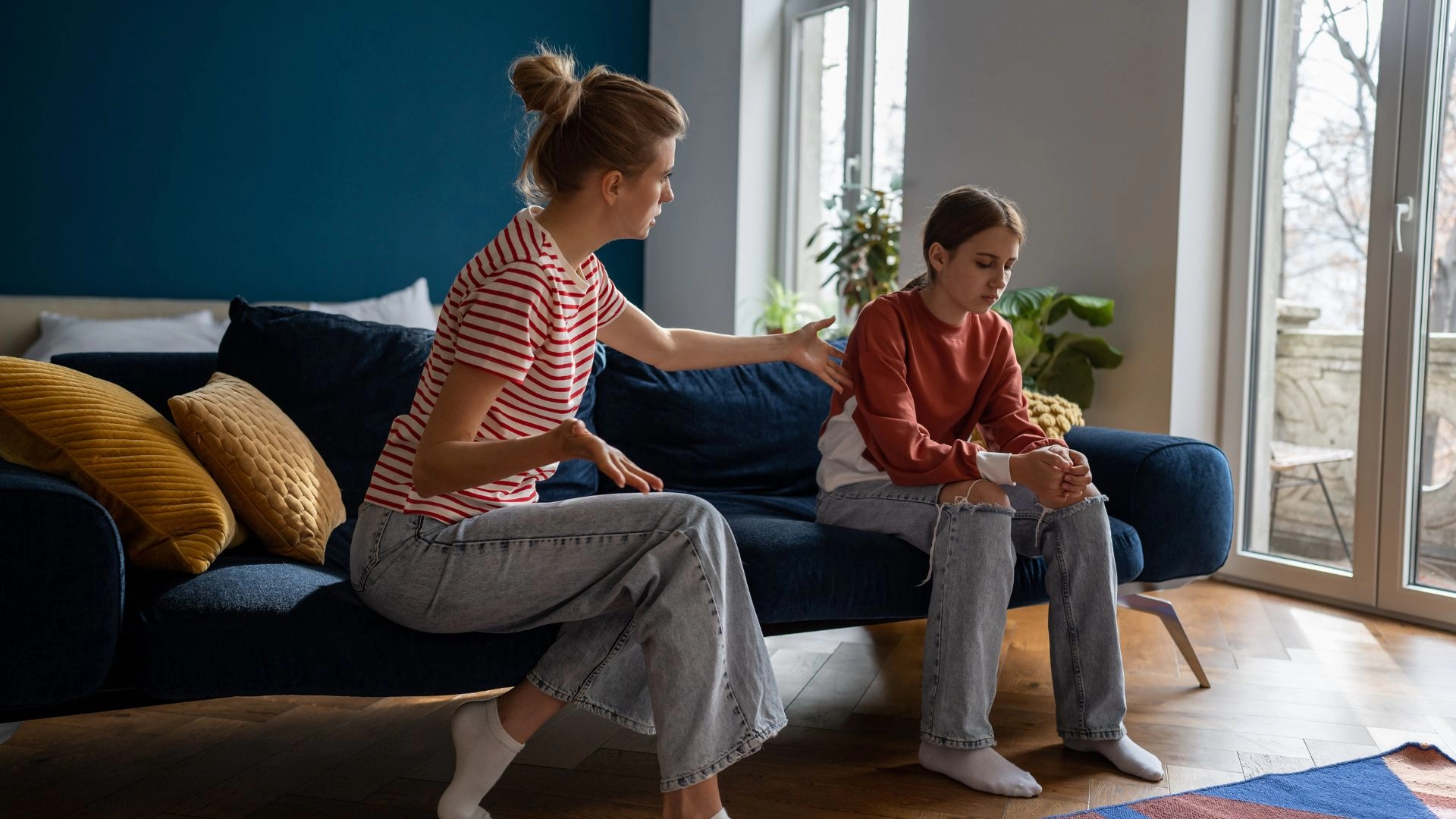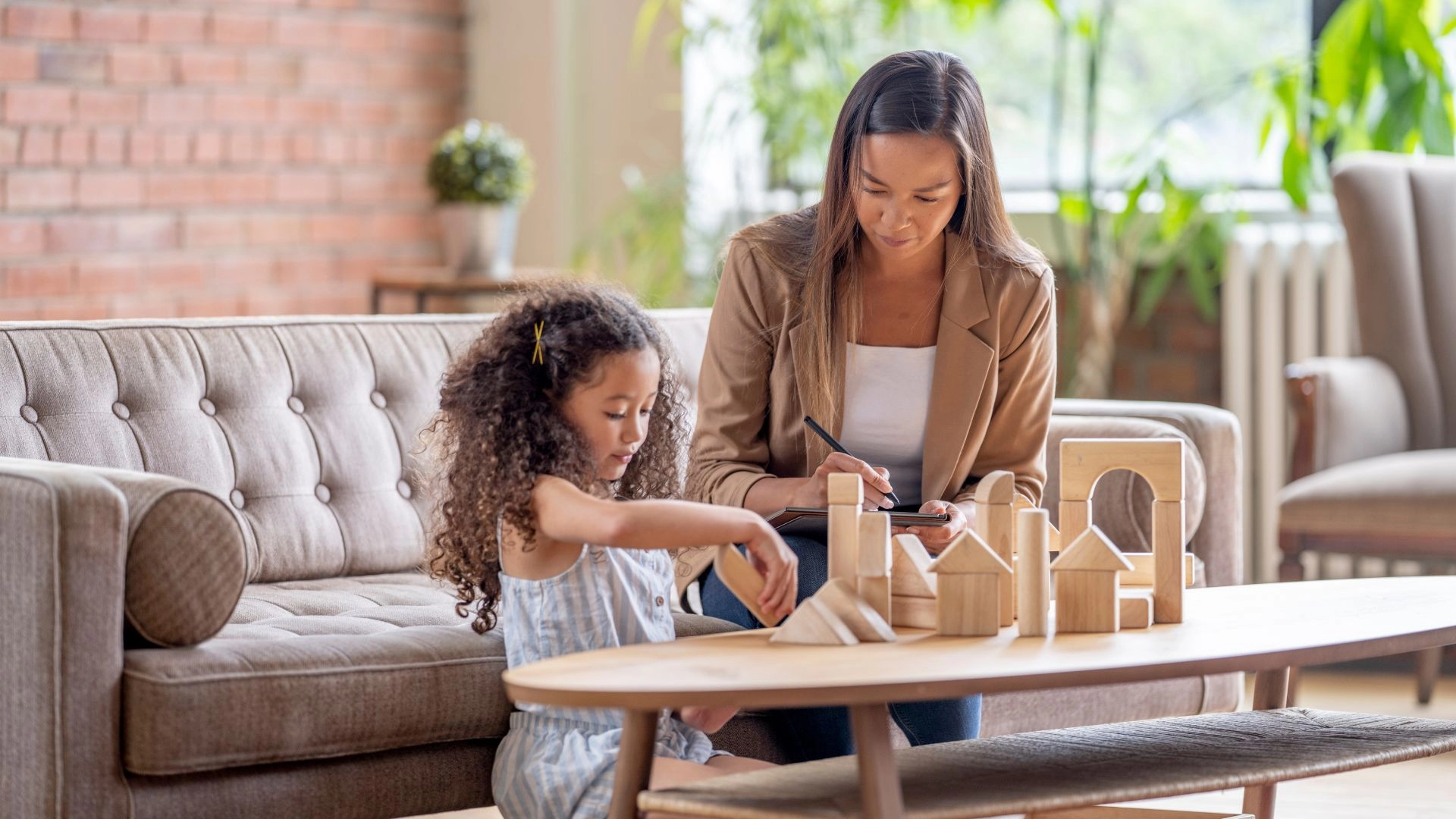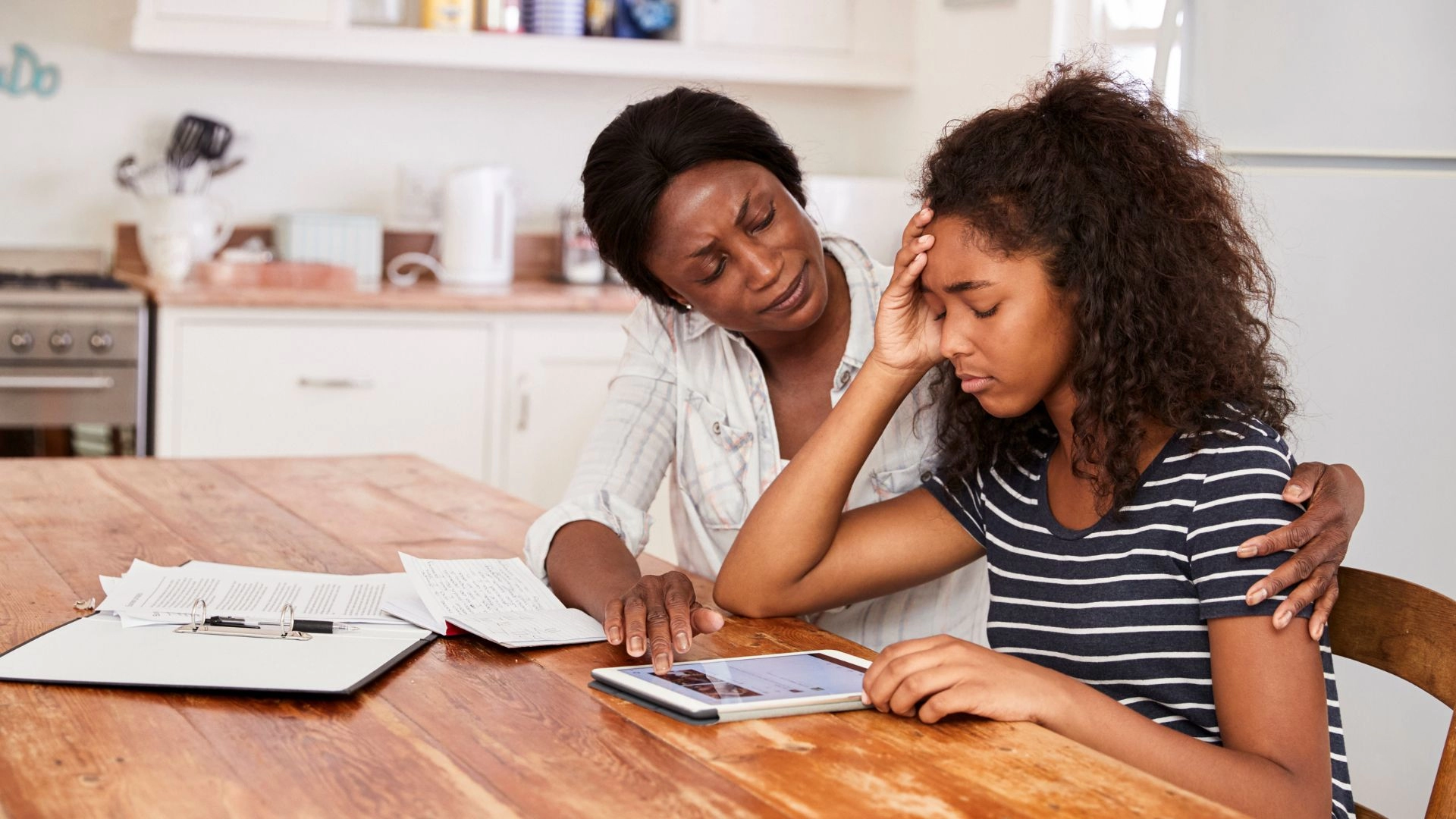We recognize that Child Counseling Therapy for depression is vital for helping kids navigate complex emotions. In this supportive environment, we focus on personalized strategies such as Cognitive Behavioral Therapy and Play Therapy to encourage expression and resilience. These methods empower children to manage their feelings while fostering coping skills. Involving families is essential, as it enhances communication and understanding. Through mindfulness techniques and emotional regulation practices, we create pathways to healing. Together, we can nurture a brighter future for your child, and there’s so much more we’d love to share on this journey toward well-being.

About Child Counselling Therapy
Child counselling therapy is a supportive space where we can help kids navigate their feelings and challenges with understanding and care. In this environment, we focus on emotional support for children, ensuring they feel safe and validated. Through child counseling, we address various issues, including childhood trauma and its impact on emotional well-being.
Our approach often includes cognitive behavioral therapy, which equips children with tools to manage their thoughts and feelings effectively. By working collaboratively with a child therapist, we tailor therapy for children to meet each child’s unique needs. This personalized approach not only fosters resilience but also empowers children to express themselves openly.
We also recognize the importance of adolescent counseling as kids progress into their teenage years. Our child mental health services aim to provide continuous support, addressing challenges that may arise during this critical period. By focusing on child depression therapy and other emotional hurdles, we help children develop coping strategies that promote long-term well-being.
Together, we create a nurturing environment where children can flourish, building a foundation for healthier emotional lives and better relationships as they grow.
Understanding Depression in Children
Understanding depression in children is essential, as many young ones may struggle silently with feelings of sadness and hopelessness that can greatly impact their daily lives. It is understood that depressive disorder can manifest differently in children compared to adults, often intertwining with anxiety in children and affecting their overall child development.
By recognizing the signs early, we can provide the necessary emotional support and interventions. Child counseling therapy can play a pivotal role in helping children navigate their feelings. Through child-centered therapy and child behavioral therapy, we can teach effective emotional regulation in children, equipping them with tools to manage their emotions.
Employing various child therapy techniques, we foster an environment where children feel safe expressing themselves. This collaborative approach not only enhances child mental wellness but also strengthens their resilience. Together, we can create a support system that encourages open communication and understanding, making it easier for children to share their thoughts and feelings. By addressing these challenges head-on, we empower children to overcome their struggles and thrive, ensuring a brighter future for their emotional health and overall well-being.

Cognitive Behavioral Therapy (CBT) for Child Depression
Cognitive Behavioral Therapy (CBT) offers us a structured approach to help children identify and change negative thought patterns that contribute to their depression. By working together in child therapy sessions, we can empower kids to recognize how their thoughts influence their feelings and behaviors. This is essential for fostering emotional healing for children.
In our therapy for kids, we often utilize techniques from cognitive-behavioral therapy to address various aspects of child depression as well as therapy for childhood anxiety. We collaborate closely with children, encouraging them to express their feelings and thoughts in a safe environment. Through engaging exercises and discussions, we help them develop healthier coping strategies and problem-solving skills.
Our child counseling services focus on improving mental health in kids by equipping them with tools to challenge negative thinking and promote positive behaviors. By reinforcing these skills in each session, we aim to create lasting change. As we journey together through psychotherapy, we witness firsthand the transformative power of behavioral therapy for kids, enabling them to take charge of their emotional well-being and thrive.
Play Therapy as a Tool for Addressing Depression in Kids
Play therapy provides a unique and effective way for us to connect with children, helping them express their feelings and maneuver the complexities of depression through the power of play. This approach allows us to use toys and games as therapeutic interventions for children, fostering emotional development in a safe environment. By engaging in play therapy, we can better understand a child’s inner world, addressing issues related to child behavior disorders and child depression.
In our sessions, we witness how play becomes a crucial outlet for self-expression, promoting child resilience therapy. Children often find it easier to communicate their emotions through play, revealing their struggles and fears. This process not only aids in stress management for children but also strengthens the parent-child therapy dynamic, as parents can observe and participate in their child’s healing journey.
As we collaborate with families, we create a supportive space that empowers kids to explore their feelings, helping them build coping skills and develop healthier emotional responses. Ultimately, play therapy equips children with tools for maneuvering life’s challenges, setting the stage for a brighter future as they grow into confident, resilient individuals.

The Role of Family Therapy in Treating Child Depression
As we explore the complexities of child depression, incorporating family therapy can greatly enhance the healing process by fostering open communication and strengthening relationships within the family unit. Through child and family counseling, we can address the root causes of a child’s emotional struggles, ensuring everyone feels heard and supported.
Family support therapy encourages a collaborative approach, where parents and siblings learn to navigate challenges together. This is especially essential for adolescents, as their mental health can considerably improve with the right supportive therapy for children. For kids facing anxiety, therapy can equip families with tools to manage stressors and promote resilience.
Early intervention therapy is critical, as it allows us to address issues before they escalate. When crisis intervention for children is needed, having a strong family foundation can make all the difference. Additionally, we can explore child behavior modification techniques that empower children and help them express their feelings more effectively.
Ultimately, parenting support plays a pivotal role in this journey. By working together, we can create a nurturing environment that fosters emotional well-being and strengthens family bonds, leading to lasting positive change.
Art Therapy for Emotional Expression in Depressed Children
Art therapy offers a unique and powerful avenue for helping depressed children express their emotions in a safe and creative way, allowing us to connect with their feelings on a deeper level. Through art therapy for kids, we create an environment where children can engage in child therapy activities that foster emotional expression and healing. When traditional communication feels challenging, we find that therapeutic play can break through barriers of emotional numbness.
In our collaborative approach, we utilize child psychotherapy techniques that are designed specifically for therapy for school-aged children. This child-focused therapy not only helps address behavioral disorders in children but also serves as an effective child anxiety treatment. By integrating art into our sessions, we empower children to articulate their struggles and experiences visually, making it easier for them to process complex feelings.
As we guide them through the creative process, we witness their transformation and resilience, which enhances their overall mental health. Ultimately, art therapy provides a gentle yet impactful way for children to confront and express their inner turmoil, paving the way for emotional understanding and growth. Together, we’re fostering a brighter, more expressive future for our young ones.
Addressing Anxiety and Depression in Children
Recognizing and addressing anxiety and depression in children requires a compassionate approach that fosters open communication and trust, allowing us to work together towards effective coping strategies and emotional resilience. In our journey through child counseling therapy, we focus on understanding each child’s unique experiences with anxiety and clinical depression.
By engaging in mental health counseling, we allow children to express their feelings and thoughts in a safe environment. Therapy for children often incorporates play-based therapy, which helps them articulate their emotions through creative activities. This method not only alleviates stress but also enhances their coping strategies.
As we address childhood emotional issues, we emphasize the importance of stress management techniques that can be integrated into daily routines. For older children and adolescents, therapy for teens can provide tailored support to navigate their specific challenges. Our collaborative approach guarantees that both parents and children are involved in the process, fostering a sense of shared responsibility for emotional well-being.
Together, we can help children build resilience and develop the skills they need to face life’s challenges, paving the way for healthier futures.

School Counseling Support for Children with Depression
Providing school counseling support for children with depression is vital in creating a nurturing environment that fosters their emotional growth and academic success. We believe that school counselors play a pivotal role in providing child counseling therapy tailored to the unique needs of each child. Through school counseling, we can address the mental health challenges that many children face, including depression, by offering therapy for children that is both accessible and effective.
By implementing adolescent therapy programs, we can guarantee that students receive the support they need during these critical years. It’s also important to recognize that some children may require specialized approaches, like grief counseling for children or therapy for special needs children. Collaboratively, we can create a network of child and adolescent counseling services that prioritize mental health awareness.
Additionally, a thorough psychiatric evaluation can help identify specific needs, allowing us to develop targeted interventions. Together, we can promote trauma-informed therapy practices that empower children to express their feelings and cope with their struggles. In doing so, we’re not just supporting individual children; we’re fostering a healthier school community for everyone.
Trauma-Informed Therapy for Children with Depression
Understanding the impact of trauma on children’s mental health, we can implement trauma-informed therapy to effectively support those grappling with depression. Many children experience symptoms of major depressive disorder, such as anhedonia and psychomotor agitation, which can stem from past traumatic experiences. By recognizing the connection between trauma and depression, we can tailor our child counseling therapy to meet their unique needs.
Trauma therapy for children is essential in helping them process their experiences. We focus on creating a safe environment where they feel comfortable expressing their emotions. Incorporating cognitive therapy for kids, we encourage them to challenge negative thoughts and develop healthier coping strategies. Additionally, medication management may be explored in collaboration with healthcare providers to address persistent symptoms.
Family support plays a vital role in this journey. By engaging parents and caregivers, we can foster a supportive network that reinforces the therapy’s effectiveness. Together, we can empower children to reclaim their joy and resilience, guiding them toward healing and healthier mental well-being. Ultimately, our collaborative efforts can make a significant difference in the lives of children who have faced trauma and are now maneuvering the complexities of depression.
Adolescent Counseling for Depression
As we navigate the complexities of adolescent mental health, it is crucial to address depression with tailored counseling that resonates with their unique experiences and challenges. Adolescent counseling for depression can be a transformative experience, helping young individuals understand their emotions and develop coping strategies. We focus on creating a safe space where they can openly discuss their feelings, including any suicidal thoughts they might be experiencing.
Incorporating techniques like cognitive behavioral therapy, we guide them in reframing negative thoughts, which can be particularly helpful for those facing mood disorders. Additionally, child therapy programs often integrate therapy for ADHD in children, recognizing the interconnected nature of mental health issues. Our approach emphasizes collaboration, involving both the adolescent and their parents through parent-child therapy to strengthen family support systems.
We aim to address cognitive decline that may arise from prolonged emotional distress and equip adolescents with practical tools to navigate their mental illness. By fostering resilience and providing tailored support, we empower our youth to reclaim their mental health and build a brighter future. Together, we can make a significant impact on their journey toward well-being.
Group Therapy for Children Coping with Depression
How can group therapy create a supportive environment for children coping with depression, allowing them to connect and share their feelings with peers who understand their struggles? In group therapy for kids, we foster a sense of belonging and social support, which is vital for children facing depressive disorders. By engaging in child counseling therapy together, we can discuss our feelings and experiences openly, reducing the isolation that often accompanies depression.
Through mindfulness for kids and structured talk therapy, we teach practical strategies to manage concentration problems and promote healthier lifestyle changes. This collaborative approach not only empowers children but also encourages them to learn from one another, building resilience and coping skills.
Additionally, incorporating elements of family therapy can enhance our understanding of each child’s unique context, allowing us to address deeper issues in a supportive setting. As we work together, we create a safe space where every child feels heard and valued, reinforcing their journey towards healing. By embracing this collective experience, we can help each child overcome their challenges and find hope amidst their struggles.
Emotional Regulation Strategies for Children with Depression
Many children facing depression struggle with managing their emotions, but by implementing effective emotional regulation strategies, we can empower them to navigate their feelings more successfully. In child counseling therapy, we often introduce techniques like mindfulness to help children become more aware of their thoughts and feelings. This awareness can be essential in recognizing signs of low mood, sadness, or hopelessness before they escalate.
We can also encourage the use of relaxation techniques, such as deep breathing or progressive muscle relaxation, to help them calm their minds and bodies during overwhelming moments. These strategies can reduce feelings of anxiety and promote a sense of control over their emotions.
Self-care practices, like engaging in physical activities or creative outlets, can further support emotional well-being. When children express themselves through art, movement, or play, they often find relief from social withdrawal and can reconnect with their peers.
Parenting Support in Managing Child Depression
Supporting our children through depression requires a collaborative approach that empowers parents to foster an environment of understanding and open communication. As we navigate this journey, we should consider various forms of parenting support that can effectively address our child’s needs. Engaging in child counselling therapy can offer us insights into our child’s depressive disorder and help us learn how to better support them.
We can also explore child psychiatry options if medication is deemed necessary. Equally important is promoting healthy habits like nutrition and exercise, which can greatly impact our child’s mood and energy levels. Incorporating child social skills therapy can help our children build connections and cope with stress and trauma more effectively.
Integrating Mindfulness and Relaxation Techniques in Child Therapy
Integrating mindfulness and relaxation techniques in child therapy can provide our children with essential tools to manage their emotions and reduce anxiety. In counseling for kids, we can teach practices like meditation and yoga that help them ground themselves during challenging moments. These techniques are especially beneficial for children dealing with depressive disorders, insomnia, and irritability.
By incorporating mindfulness into early childhood therapy, we create a safe space where kids can explore their feelings and learn coping strategies. Parent-child therapy sessions can also be an excellent opportunity for us to model these techniques together, fostering deeper connections and understanding.
Support groups can further enhance this process, allowing children to share their experiences and learn from peers who face similar challenges. When we focus on these practices, we’re not just addressing symptoms; we’re equipping our children with lifelong skills to navigate their emotions and build resilience.
Through a collaborative approach, we can guide our children towards a healthier mindset, empowering them to take charge of their well-being. Together, we can promote healing and growth, ensuring our children feel supported every step of the way.
Contact Our Child Counseling Therapy Center for Depression Support
If you’re seeking compassionate support for your child’s depression, our counseling therapy center is here to help you navigate this challenging journey together. We recognize that when children face depression, it can manifest in various ways, including chronic pain and psychomotor retardation. Our team specializes in child counseling therapy, focusing on the neurochemical imbalances that may affect serotonin and dopamine levels.
At our Child Counselling Therapy Center, we emphasize open communication during parent-child therapy sessions, allowing both you and your child to share feelings in a supportive, stigma-free environment. While medications like antidepressants may be part of the treatment plan, we focus on a holistic approach that integrates therapy to nurture emotional growth and resilience.
Our commitment is to deliver tailored support for your child’s depression, addressing their unique needs with compassion and expertise. We strive to create a safe and nurturing space where healing begins. Remember, you don’t have to face this challenge alone. We’re here to assist you throughout the process. Contact us today to discover how our services can support your family and help your child rediscover joy.

Frequently Asked Questions
How Can I Identify if My Child Needs Counseling?
When we’re trying to identify if our child needs counseling, we should look for changes in behavior, mood, or social interactions. If they’re withdrawing from friends, displaying persistent sadness, or struggling with daily activities, it might be time to seek support. We can also talk openly with them about their feelings and observe any signs of distress. It’s important we work together to guarantee our child feels heard and supported.
What Qualifications Should I Look for in a Child Counselor?
When we’re searching for a child counselor, we should look for someone with relevant qualifications, like a master’s degree in psychology or counseling. It’s important they have specialized training in child development and therapy techniques. We also wanna make certain they’re licensed and have experience working with kids. Trust and rapport are essential, so we might consider their approach to see if it aligns with our values and our child’s needs.
How Long Does Child Counseling Therapy Typically Take?
When we think about how long counseling typically takes, it really varies based on individual needs and goals. Generally, we might see progress in a few sessions, but deeper issues can take longer to address. It’s important for us to stay open about our expectations and check in regularly with our counselor. By collaborating and adjusting our approach as needed, we can work together to find what feels right for us.
What Should I Expect During My Child’s First Therapy Session?
During our child’s first therapy session, we can expect an open and welcoming environment. The therapist will likely start by introducing themselves and explaining the process. They’ll ask our child some questions to get to know them better and understand their feelings. It’s a chance for our child to share what’s on their mind. We should remember, it’s all about building trust and ensuring they feel comfortable expressing themselves.
How Can I Support My Child Outside of Therapy Sessions?
Supporting our child outside of therapy sessions is essential. We can create a safe space for open conversations, encouraging them to express their feelings without judgment. Setting routines can offer stability, while engaging in fun activities together helps strengthen our bond. We should also educate ourselves about their experiences, fostering understanding and empathy. By being patient and present, we’ll show them that they’re not alone, reinforcing the support they receive in therapy.
